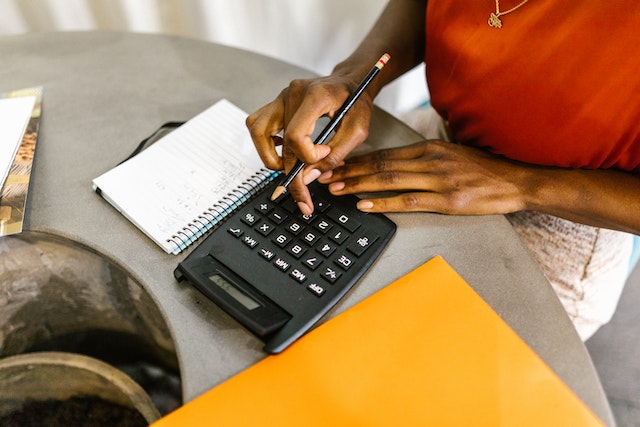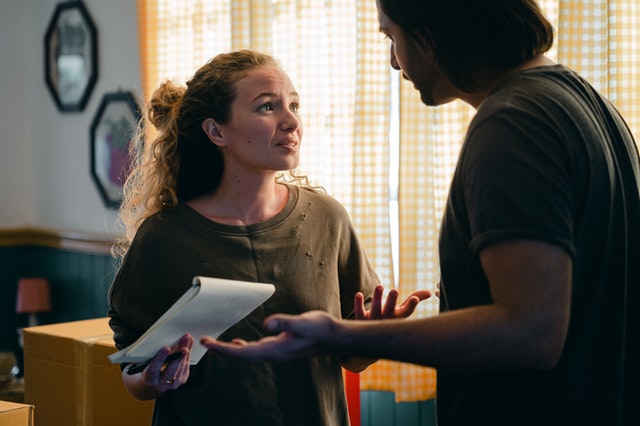New policy framework on debt to govt includes family violence; related research on economic abuse
Thu 02 Nov 2023
A new government policy framework for personal debt to government includes consideration of family violence. This news story also highlights related research on economic abuse.

Te Tari Taaki | Inland Review has published a policy framework and guidance for handling personal debt that is owed to the government. The document, A framework for debt to government: Guidelines for agencies managing personal debt owed to government (2023), was designed to help government agencies to design, implement and evaluate policy and operational processes related to the creation, collection or write-off of personal debt owed to government. The purpose of the framework is to address problem debt and the lack of consistency among government agencies in managing this type of debt.
The framework and guidance includes consideration of family violence and economic abuse under Part 3: The person-centred approach. This section of the framework outlines how agencies can collectively take into account an individual’s personal circumstances and their ability to repay the debt.
Paragraph 4.5 recommends how agencies can take a person-centred approach. It includes the recommendation that agencies:
"e) Have policies in place around when to refer debtors to financial capability support services or other services (including, where relevant, advocacy and dispute resolution services or specialist services that can support safety and wellbeing for victims of abuse)." (page 14)
Under assessing hardship, paragraph 4.8 outlines the factors that should be considered. This includes:
"Is the debt caused by a partner, ex-partner, family member or caregiver who has coercive control over the person’s finances? Is the person able to make independent and autonomous decisions about their finances? Is the debt adding to entrapment for someone experiencing family violence or abuse?" (page 15)
In relation to understanding the needs of groups most affected by debt, paragraph 4.32 states:
"Debt may sometimes be the result of economic harm. Agencies should ensure that they:
• Understand the signs of family violence and know how to support customers, including a referral system to expert support services,
• Avoid requiring evidence of family violence, and avoid requiring repeat disclosure of circumstances,
• Have a policy on allocation of debt in cases of family violence, and
• Have effective processes in place to protect information, including between account holders if necessary." (page 18)
The framework was developed by Inland Revenue, the Ministry of Social Development, the Ministry of Justice, and the Department of the Prime Minister and Cabinet. The work responds to recommendations from the Welfare Expert Advisory and Tax Working Groups to consider an all-of-government approach to prevent and manage personal debt owed to government agencies.
According to the Cabinet papers for the Policy framework for Debt to Government, the Cabinet Social Wellbeing Committee agreed to adopt the framework as a Cabinet policy tool and also agreed that "...policy papers submitted to Cabinet will include a discussion on whether the proposal is consistent with the principles and guidance in the framework" (see SWC-23-MIN-0092). The Committee also invited the joint Ministers involved with this work programme to report back to Cabinet in July 2024 on initial assessments of the framework, review of agencies' existing debt policies and operations against the framework, and advice on future reporting and evaluation. The Cabinet paper (SWC-23-SUB-0092) also highlighted:
"In terms of driving change, the framework can only be effective to the extent that Ministers choose to give effect to its principles in Cabinet decisions. The framework is forward-looking: there will be no application of the framework to existing policies, except insofar as Ministers agree to do this on a case-by-case basis."
The framework is included on the webpage for Cabinet paper consultation with departments under Consultation on other cross-government issues.
For more information see:
- National Collective of Independent Women's Refuges Inc. submission on the Draft Framework for Debt to Government (see other submissions)
- research reports on debt to government from the Social Wellbeing agency
- initial Reducing impact of debt to government Cabinet papers.
Also see related media below.
Related research on economic abuse
A recent report from Good Shepherd highlights experiences of economic abuse and systemic challenges experienced by victims. The report, Economic Harm Support Service Pilot Evaluation (2023) draws on an evaluation of a 12 month pilot of Good Shepherd NZ's Economic Harm Support Service. The report outlines experiences of economic abuse including: safety risks due to lack of financial resources or practices and policies that force victims to interact or disclose information to perpetrators, joint debt and economic entanglement including post separation, coerced debt, debt by deception and manipulation, economic control and restriction, children used as a way to abuse and control that involves financial entanglement and debt, immigration status used as a tool to control and abuse, and housing including tenancy obligations.
The report outlines systemic issues that compound risks and challenges for victims. For example, government policies that disadvantage victims, such as income thresholds that prevent victims from accessing support or limits to financial support. The authors highlight that:
"Government agencies contribute to the debt burden of family violence victims by requiring repayment of financial support to extract themselves from violent relationships."
They also note that systems are manipulated by perpetrators to cause further harm. The report also examines the successes of and increasing demand for the Economic Harm Support Service. The report concludes with recommendations for government and policymakers, the financial and debt sector, and the Economic Harm Support Service. For more information see the Good Shepherd media release Report Reveals Cost Of Being A Victim Of Violence and related reports on the Good Shepherd service.
Population based studies have found that women's lifetime prevalence of economic intimate partner violence increased from 4.5% in 2003 to 8.9% in 2019 in Aotearoa New Zealand. The researchers write that the finding of increased economic abuse and controlling behaviours "...has relevance from a policy and practice perspective, as it indicates that controlling behaviours and economic abuse need their own recognition and response."
Researcher Ayesha Scott has interviewed women in Aotearoa New Zealand about their experiences of intimate partner violence economic abuse including Family Court proceedings. See the following articles for more information about the research:
- Hidden hurt: The impact of post-separation financial violence in Aotearoa New Zealand (2020)
- Chapter 12: Post-separation financial abuse, the money taboo and the family justice system: perspectives from Aotearoa New Zealand (2023) in the Research Handbook on Family Justice Systems
- Financial Abuse in a Banking Context: Why and How Financial Institutions can Respond (2023).
For more Aotearoa research on economic abuse see
- Economic abuse in New Zealand: towards an understanding and response (2018)
- Women's experiences of economic abuse in Aotearoa New Zealand (2017)
- "What's his is his and what's mine is his" : financial power and the economic abuse of women in Aotearoa (2017).
For more information including international research search our library by economic abuse and financial abuse, Good Shepherd's Economic Harm information and a video Introduction to Economic Abuse from the Australia-based Centre for Women's Economic Safety and Insight Exchange.
Update: Research from He Koiora Matapopore | the New Zealand Family Violence Study looked women's experiences of economic abuse. The researchers identified that about 15% or one in seven women who have been in a relationship have experienced economic abuse. Further, economic abuse compounds the impacts of other forms of intimate partner violence and pushes women into poverty. See the article Economic Abuse by An Intimate Partner and Its Associations with Women’s Socioeconomic Status and Mental Health (2024) by Brooklyn M. Mellar, Janet Lynn Fanslow, Pauline J. Gulliver and Tracey K. D. McIntosh. Also see related media below.
Related news
The UN Working Group on discrimination against women and girls published the report, Gendered inequalities of poverty: feminist and human rights-based approaches (A/HRC/53/39) in April 2023. The report states:
"43. Poverty and gender-based violence, including sexual violence and denials of bodily autonomy, therefore interact in a vicious, mutually reinforcing cycle. Women and girls facing sexual harassment at work, violence at home or violence on the streets are unable to participate on an equal basis in the labour market, and this in turn means that they are also discriminated against in connection with contributory social security benefits and are more likely to experience poverty, violence and homelessness in old age."
The report makes recommendations for government, corporations, and international and regional economic, financial and monetary institutions. Chair of the Working Group Dorothy Estrada-Tanck presented the report to the UN Human Rights Council, saying the "...report demonstrated that poverty and socioeconomic inequality were the result of blatant systemic failures leading to a vicious cycle of exclusion and discrimination" (English translation by UN).
The 68th session of the Commission on the Status of Women will take place in March 2024. The priority theme is "Accelerating the achievement of gender equality and the empowerment of all women and girls by addressing poverty and strengthening institutions and financing with a gender perspective." The review theme is "Social protection systems, access to public services and sustainable infrastructure for gender equality and the empowerment of women and girls (agreed conclusions of the sixty-third session)."
The Mako Mama - Mangopare, the Single Parents Project report summarised findings from research on single parents involving focus groups and survey of 3,545 single parents. Of single mothers who responded to the survey, 67% had experienced violence and abuse from someone they were in an intimate relationship with. For 80% of these, the person from whom they experienced violence and abuse was the other parent of their child/children.
Related media
Old people financially abused as young ones run out of cash, Waikato Times, 25.03.2024
Opinion - Janet Fanslow: We need to speak up about economic violence, Newsroom, 21.03.2024
1 in 7 women experience economic abuse, study finds, RNZ, 06.03.2024
Economic abuse affecting around 15 percent of women in relationships, 05.03.2024
Westpac NZ steps up efforts to stop abusive payments, Westpac NZ Media release, 27.11.2023
The long-term impact of economic harm, Good Shepherd news, 20.11.2023
Using design to combat economic abuse, ANZ bluenotes [Australia], 18.10.2023
Poverty, patterns and politics, E-Tangata, 15.10.2023
Questions over effectiveness of child support system, RNZ, 12.10.2023
Tackling socioeconomic inequalities in Aotearoa, University of Auckland media release, 24.09.2023
Māori missing out on welfare entitlements, Waatea News, 23.08.2023
Debt grab hurting beneficiaries, Waatea News, 09.08.2023
Empowering women through social protection: UN rights office, UN News, 21.07.2023
Northlanders owe nearly $80m to Ministry of Social Development, NZ Herald, 27.06.2023
New research into single parents finds discrimination and stigma, RNZ, 02.05.2023
Researchers found sole parents treated with stigma by agencies, RNZ, 02.05.2023
'A bank account should be a human right' - Westpac, Stuff, 05.04.2023
Government's debt fairness plans revealed, One News, 03.03.2023
Supporting International Economic Harm Awareness Day, Shine media release, 25.11.2022
Separate offence needed to protect victims of economic harm, advocates say, RNZ, 24.11.2022
Image: RDNE Stock project on Pexels







